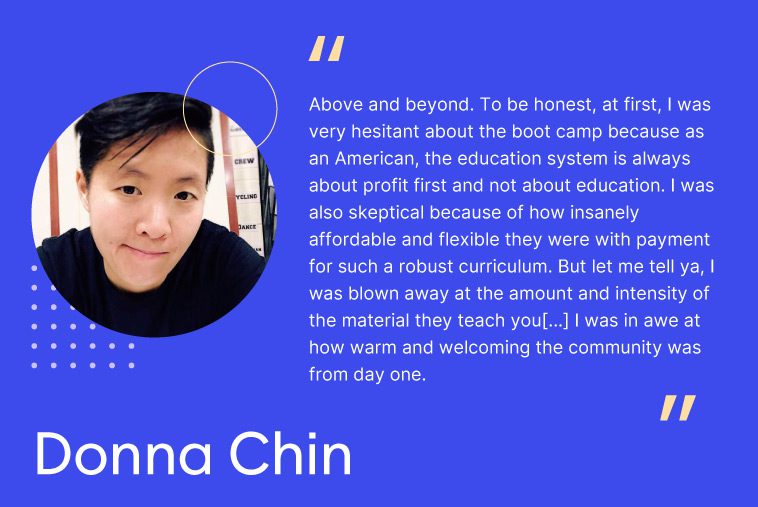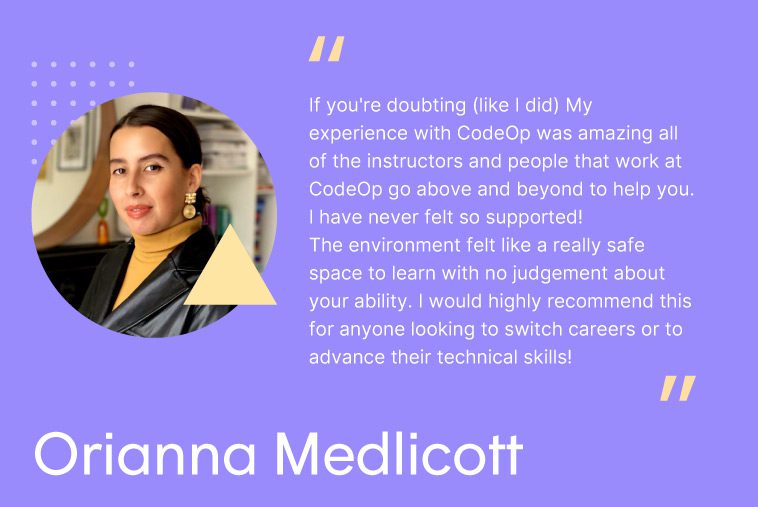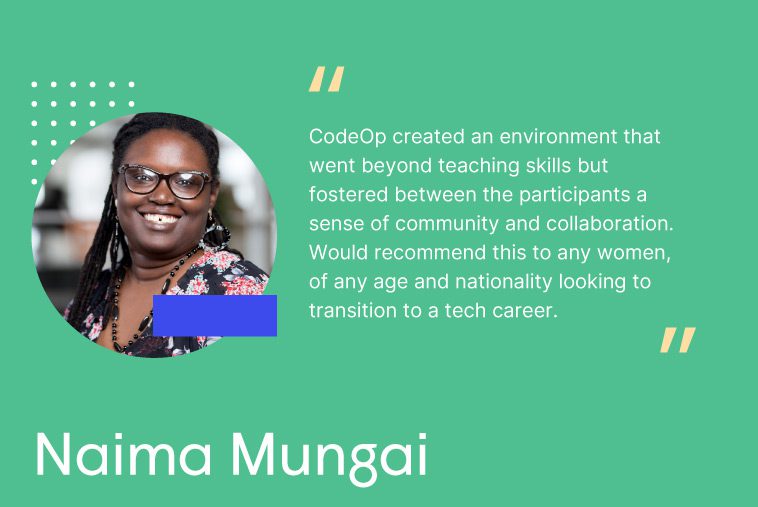You don’t need to look far to see that our lives are becoming increasingly digital. From the apps we use every day to the websites we read to stay up-to-date with the latest news, technological innovations are becoming pervasive in everyone’s daily life.
Yet despite tech’s substantial impact, women are often being left out of the conversation. Women only hold 33 percent of jobs in large technology firms, although this figure has slightly increased in the past few years. A UNESCO study also found that women make up only 28 percent of engineering graduates, and only 22 percent of those working in AI are women.
Having women at the forefront of product innovation and development is not just the right thing to do. It’s also good for business. It ensures that companies continue to make products that cater to all segments of consumers and deliver inclusive services.
One way to close the tech gender gap is to encourage more women to enter the tech industry and offer them full support in this endeavor—whether they are interested in coding, data science, or product management. And tech schools like CodeOp are a great platform for women, transgender, and non-binary people to change the face of Silicon Valley.
On top of high-quality programs, CodeOp offers women, trans, and non-binary people a supportive environment to help launch their careers in tech.
What Is CodeOp?
Founded in 2018, CodeOp is a tech school created to help solve the gender gap in tech. The school has its roots in Barcelona, which despite being a burgeoning tech hub lacks tech training grounds for women, trans, and non-binary people. It offers courses exclusively for women, trans, and non-binary women, dedicated to providing them with the support and training they need to break into tech and become leaders in their chosen fields.
CodeOp was started by Katrina Walker, who had a non-linear and non-traditional path into tech. She started her professional life by studying theater arts at university and moved on to working as a social worker before discovering her affinity for data science. Katrina eventually pursued her Master’s Degree in Data Science in Barcelona.
“It was never on my bucket list to create a startup and certainly not a tech school for women, trans, and non-binary people,” shared Katrina. “Launching CodeOp really was a matter of troubleshooting my own problems that I experienced first as a little kid not encouraged to pursue tech, and then as a data scientist working in the corporate world.”
Experiencing firsthand the struggles of women in tech and the discomfort of working in the type of “bro culture” environments that are prevalent in the industry, she wanted to build a space that would bring underrepresented groups to a space that catered to their non-linear journeys and different needs so they can successfully break into the industry. The result of this was CodeOp.
Aside from technical training, CodeOp also offers comprehensive career support to its students. Mentorship, soft skills workshops, mock interviews, and personal growth workshops are just some of the ways that CodeOp ensures students have a higher chance of landing their dream jobs. In 2020, 90 percent of CodeOp graduates received job offers within six months of graduation.
What Can You Learn at CodeOp?
CodeOp courses are delivered through live online classes, with specific programs also available on-campus in Barcelona and Malaysia. The tech school offers programs in full-stack web development, data science, product management, Python, and data analytics for beginners.
Full Stack Web Development
- Program length: 11 weeks (full-time); 26 weeks (part-time)
- Tuition: €5,300 (∼$5,596) + €600 (∼$633) deposit for remote learning; €7,200 (∼$7,602) + $600 (∼$633) deposit for in-person learning
- Location: In-person, remote
- Financing options: Flexible payment plans, scholarships, and Income Share Agreement (ISA)
With this course, you’ll learn how to build web applications and jumpstart your career as a software developer. Before diving into the bootcamp, you’ll start with pre-course work that will give you a basic overview of full-stack development. This also ensures that you and your peers begin the program on equal footing.
The Full Stack Web Development course is divided into three modules.
- Module 1: Lecture Phase. Learn theoretical foundations, develop problem-solving abilities, and enhance their concept retention. This is taught through scaffolded lectures and activities, live-coded reviews, and weekly milestone checks.
- Module 2: Project Phase. Develop three full stack apps and build your knowledge through flash lectures in this module. Participate in iterative group works and hands-on projects.
- Module 3: Career Prep. Undergo a week of intense preparation to ensure you’re fully prepared to graduate and enter the tech workforce. Career services include whiteboarding, technical improvisations, flash lectures, mock technical interviews, and pitch coaching.
Classes at CodeOp are small. This structure ensures that you receive the full support you need to complete the course. By the end of the program, you’ll have created three main projects to produce a solid technical portfolio that you can show to potential employers.

Data Science
- Program length: 26 weeks (part-time)
- Tuition: €5,300 (∼$5,596) + €600 deposit (∼$633)
- Location: Remote
- Financing options: Flexible payment plans, scholarships, and Income Share Agreement (ISA)
You’ll receive hands-on training using libraries in Python, such as Pandas, Seaborn, and NumPy. The course is divided into eight modules so you can graduate with a complete data science toolkit to become a data analyst or an entry-level data scientist.
- Module 1: Introduction to Programming. Learn how to code in Python, the most-used programming language among data professionals.
- Module 2: Programming for Data Science. This module will teach statistics, basic data analysis, and classic data analysis methods such as regression and classification.
- Module 3: Infrastructure and SQL. Review SQL and relational databases and how to use Linux/Bash and Docker.
- Module 4: Statistics. Explore basic statistics concepts like central tendency measures, probabilities, charts, and graphs to build your foundations in ML and advanced data analysis.
- Module 5: Machine Learning. Create a predictive model for a given dataset during this module. Also learn the differences between supervised and unsupervised machine learning methods, regression, classification, and clustering.
- Module 6: Advanced Data Science. Advanced methods such as geospatial data, AB testing, and time series are covered in this module. Learn different techniques that apply to these data types and how to pre-process and visualize them.
- Module 7: Project Phase. This module is six weeks long, puts everything together, and requires students to work collaboratively and build a portfolio. You’ll be challenged to create a real use case and implement a DA project from end to end. You must complete at least two projects throughout the course, one individual and one with a team.
- Module 8: Career Preparation. Prepare for job interviews through data challenges, logical puzzles, and practice sessions. Also, receive career coaching and support to ensure you’re fully prepared to enter the job market.

Product Management
- Program length: 60 hours (part-time)
- Tuition: €1,500 (∼$1,583) + €300 (∼$316)
- Location: Remote
- Financing options: Installment payment plans, low-interest financing options
This course will develop your ability to think outside the box and provide innovative solutions to product problems. By the end of the course, you’ll have a better understanding of product/market fit and be adept at Agile frameworks such as Kanban and Scrum.
- Module 1: Role of the Product Manager. Find out what it means to become a product manager and how it differs from other positions.
- Module 2: Creating a Hypothesis. Learn how to identify problems and how to gather data to support the product’s value proposition.
- Module 3: Testing a Hypothesis. Learn how to validate a problem statement and how to measure the success of the validation.
- Module 4: Scoping your MVP – Part 1. Define an MVP, including user personas, product design, and product roadmap.
- Module 5: Scoping your MVP – Part 2. Explore product releases and MVP improvements through qualitative and quantitative data.
- Module 6: MVP Design and Delivery. Learn strategies and frameworks to get an MVP to market.
- Module 7: Leveraging analytics and product reviews. Leverage analytics techniques to make data-driven product decisions and learn more tactics to advance products.
- Module 8: Launch Strategies. Explore various strategies and tactics for market engagement, effective communication messages, and how to generate sales.
- Module 9: Sharpening Skills. Learn additional product concepts and skills, including how to identify and fight unconscious biases in product development. Also, prepare for product management interviews.

Python and Data Analytics
CodeOp also offers online Python and Data Analytics courses for beginners. These courses teach the basics of programming and data analytics and allow students to learn at their own pace and schedule.
There are three modules in this series of courses, which can be taken separately or altogether. You will have access to real-time mentoring and be able to add real technical projects to your portfolios. A verified course certificate upon completion of a module.
- Module 1. Intro to Programming: €99 ($105)
- Module 2. Python for Data Analytics: €289 ($307)
- Module 3. Database Essentials: €489 ($519)
Bridge the Gender Gap in Tech with CodeOp
CodeOp’s uniqueness comes from its commitment to creating a training ground specifically for women, trans, and nonbinary people. To give women+ students the best chance to start their tech careers, the school combines high-quality tech skills training, career support, and lifelong access to an active and vibrant global community and tech network.
Ready to make a difference in tech? Speak to the CodeOp support team who can help find the right course for you.
About us: Career Karma is a platform designed to help job seekers find, research, and connect with job training programs to advance their careers. Learn about the CK publication.




